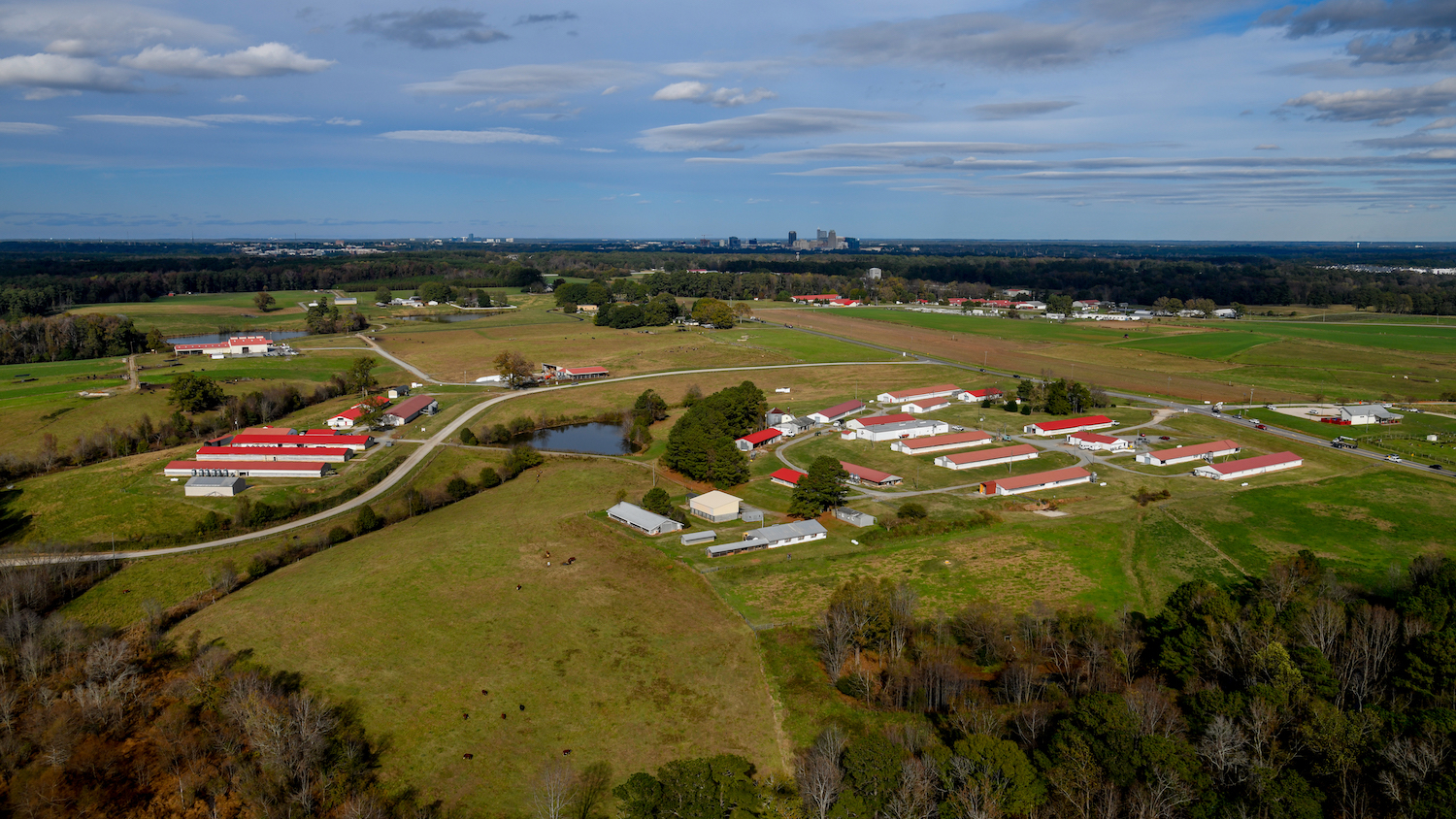CALS Offers New Grants to Tackle Needs in Animal Agriculture

Making progress on the challenges facing North Carolina’s largest agricultural sector — food animal production and processing — will require expertise from a variety of scientists, veterinarians and industry professionals.
That’s the idea behind new collaborative grants for animal agriculture and workforce development being funded by NC State University’s College of Agriculture and Life Sciences (CALS). Brief pre-proposals are due Sept. 15. Finalists will submit full proposals by Nov. 1, and funding for successful interdisciplinary teams will be available in early 2025.
The grants are the latest step for the Food Animal Initiative (FAI), a joint effort between CALS and NC State’s College of Veterinary Medicine, said CALS Dean Garey Fox.
“Animal-based protein and products will be key to providing a sustainable food supply for generations to come. Our goal with the Food Animal Initiative is to create interdisciplinary teams to continue to advance the food-animal industry,” Fox said. “These grants are structured to bring scientists from multiple disciplines together to collaborate with industry partners.”
One-year awards of up to $50,000 will help implement solutions to challenges in the food animal industry. Two-year grants of up to $125,000 will expand the reach of successful projects with demonstrated impact. Awards may be made in five areas identified in an Economic Development Study that FAI commissioned:
- Integrated Systems for Animal Health and Food Safety
- Integrated Food Animal Systems and Sustainability
- Protein Innovation
- Digital Animal Agriculture
- Food Animal Agriculture Communications
Each funded project will be led by a CALS researcher but must include scientists from other disciplines, with preference given to proposals with partners in industry and the College of Veterinary Medicine. Every proposal must include a workforce development component that involves students in two- or four-year undergraduate, graduate or Doctor of Veterinary Medicine (DVM) programs.
“We have ambitious goals: to produce scientific breakthroughs that can be implemented quickly and to produce well-trained future employees to meet the needs of North Carolina’s livestock and poultry industries,” Fox said.
Grant details and proposal submission links are available on the Advancing Food Animal Innovation and Talent Development Grants webpage.
This post was originally published in College of Agriculture and Life Sciences News.


